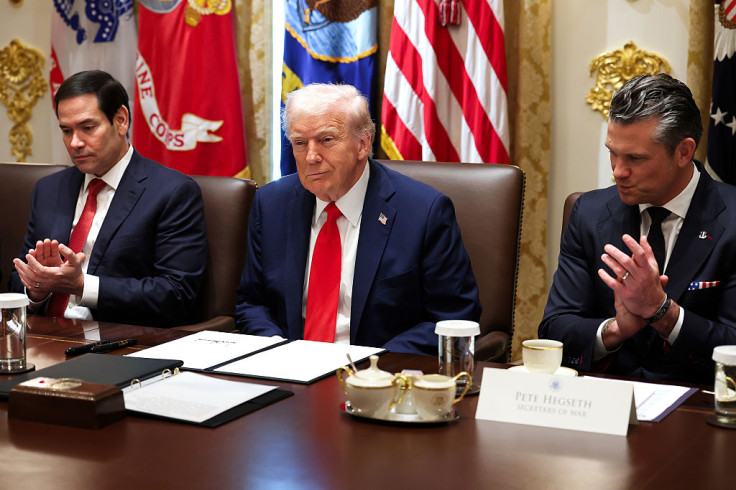
Since early September, the Trump administration has carried out a series of military strikes in South America, targeting vessels allegedly involved in illicit drug trafficking. The attacks, which began on Sept. 2, have killed more than 60 people U.S. officials describe as members of drug trafficking organizations.
A new report by former State Department lawyers Rebecca Ingber and Jessica Thibodeau for Just Security warns that the administration cannot continue its campaign in Venezuela without explicit Congressional approval once the War Powers Resolution's 60-day limit expires on Nov. 3.
Trump notified Congress on Sept. 4, as required under the resolution, reporting the first of 14 total air strikes to date. Under the law, the administration must halt further military action after the 60-day period unless Congress formally authorizes continued operations.
"We do not expect the President to terminate this use of force per this requirement. He and Secretary Pete Hegseth have made very clear these strikes will continue," the report says.
Earlier today, at the direction of President Trump, the Department of War carried out a lethal kinetic strike on yet another narco-trafficking vessel operated by a Designated Terrorist Organization (DTO) in the Eastern Pacific.
— Secretary of War Pete Hegseth (@SecWar) October 29, 2025
This vessel, like all the others, was known by our… pic.twitter.com/mBOLA5RYQe
The War Powers Resolution stipulates that the president must end any use of armed forces unless Congress has declared war, authorized the use of force, extended the 60-day period by law, or is physically unable to meet due to an armed attack or invasion. "None of these things have happened here," the authors note.
Legal experts say the Trump administration has few options under U.S. law to justify its ongoing strikes. The attacks are frequent and coordinated, not isolated incidents, and there is no existing statute giving the president authority to carry out lethal operations against these groups. Experts also note that labeling the strikes as part of a "non-international armed conflict" does not provide legal cover.
"It is quite possible that the Executive Branch will remain silent in the face of the clock's deadline, and refuse to justify its lack of compliance with the Resolution," the report says. "Another possible outcome is that the Trump administration...will affirmatively make the case that the 60-day clock is an unconstitutional infringement on the President's Commander-in-Chief authority."
Historically, even when previous presidents questioned the legality of the War Powers Resolution, they still reported to Congress, signaling respect for its role in authorizing military action. In many cases, lawmakers used their oversight to demand explanations and, at times, shape or limit operations.
The report on the 60-day deadline comes as U.S. officials claim the administration has decided to expand its operations to strike military facilities inside Venezuela. The strikes aim to "decapitate the hierarchy" of the Cartel de los Soles, which U.S. officials allege is run by top members of the Maduro regime, sources told the Miami Herald.
Sources that spoke with the outlet did not confirm whether Maduro himself is a target but warned that his options are shrinking.
"Maduro is about to find himself trapped and might soon discover that he cannot flee the country even if he decided to," one source said. "What's worse for him, there is now more than one general willing to capture and hand him over, fully aware that one thing is to talk about death, and another to see it coming."
Similarly, other reports highlight that Trump has been presented with a list of potential strikes inside Venezuela, targeting the nexus between the Maduro regime and drug-trafficking networks, including the Cartel de los Soles.
The targets reportedly include military ports, airports, naval facilities, and airstrips. While Trump has not made a final decision, he has publicly suggested the campaign may expand from maritime strikes to operations on land.
© 2025 Latin Times. All rights reserved. Do not reproduce without permission.







